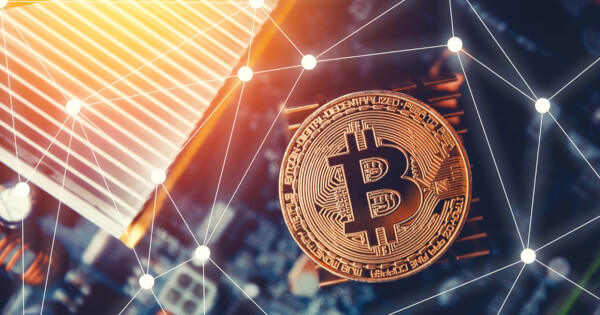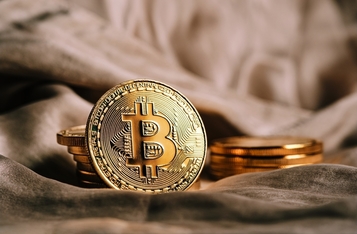Ripple’s CEO Argues XRP Decentralization: Are Bitcoin and Ethereum Really Controlled by China?
The Ripple team has countered the SEC's decentralization argument claiming that Bitcoin is controlled by China as a result of the mining pool concentration. Is this true?

Ripple is under attack from the United States Securities and Exchange Commission (SEC) which is claiming XRP is a security, while it maintains that Bitcoin and Ethereum are commodities due to their decentralization—a distinction that is unwarranted according to Ripple CEO Brad Garlinghouse.

As the SEC pursues Ripple in a lawsuit over the alleged sale of XRP as unregistered securities, CEO Brad Garlinghouse has called out the perceived bias of the regulator for attacking XRP but giving a pass to Bitcoin and Ethereum.
The majority of the XRP cryptocurrency is controlled by Ripple Labs and the 100 billion tokens were created in one go, they are not mined gradually like Bitcoin. The SEC argues that XRP is more like a share in a company than a decentralized crypto as Ripple owns the vast majority of XRP tokens and both Garlinghouse and founder Chris Larsen own a large holding of the crypto themselves.
XRP has long come under criticism from the SEC and many the crypto community for its lack of decentralization. The SEC has in the past ruled that both Bitcoin and Ethereum are not securities as these cryptocurrencies are not centrally controlled by any person or company. The regulator instead views Ethereum and Bitcoin as commodities.
Ripple CEO Garlinghouse, along with the Ripple team have countered the decentralization argument claiming that both Ethereum—in its current proof-of-work consensus algorithm—and Bitcoin are controlled by China as a result of the mining pool concentration.
In a rebuttal to the charges laid by the SEC, Ripple claims that due to this Chinese mining dominance, in fact, XRP is far more decentralized than Bitcoin and Ethereum.
Per the statement:
“XRP is a widely adopted digital asset based on open-source blockchain technology, with an extremely robust, fully-functioning currency market. XRP consistently ranks among the top three virtual currencies by market capitalization—alongside bitcoin and ether, the two Chinese-controlled virtual currencies that the SEC has stated are not securities.”
The Ripple CEO’s argument is an increasingly common one among those criticizing the decentralization of proof-of-work systems is the centralization brought by lower hardware and electricity costs and the high degree of mining hash rate concentrated in “Chinese” mining pools. While it is factually correct to say that Chinese Bitcoin mining pools control a large amount of the hash rate that powers Bitcoin—to say that China can easily assert control over Bitcoin is quite the stretch.
Does China Control Bitcoin and Ethereum?
Garlinghouse’s argument against Bitcoin is that the networks mining power is predominantly located in China, which he believes gives the country control over over Bitcoin. On a podcast on Dec 1, Garlinghouse said:
“People are pretending that China does not control Bitcoin. There is this thing that is called the 51% attack, and if someone controls more than 50% of the mining power, they can control the future direction and vaster and past events of blockchain.”
The idea of geographical mining pool centralization is a well-documented concern, one that appears to have been exaggerated by opponents of Bitcoin and Ethereum. While a study in 2019 estimated that about 65% of the hash rate was within China itself, it would be incredibly difficult for the state to direct the mining pools to perform a 51% attack on the Bitcoin network.
Mining pools might have a geographic base, but miners that contribute their hardware and their hash rate may not necessarily be loyal to that geography. When looking at the overall hash rate of any particular mining pool, this power is a combination of all the individual miners who are focused on their own profits in the pool—not just a giant block of hash power that can be controlled centrally. At any given time, if miners are unhappy with the rewards and technical conditions of their mining pools, they can direct their own hash power to mining pools based in Europe or North America.
The main reason the 4 largest mining pools in the world exist in China is mainly due to cheap access to power in hydroelectricity in provinces like Sichuan, and close connections between hardware manufacturers based in China, and mining pools/miners with the best claim to established relationships.
Another important factor to consider is that mining pools in China are actually operating outside of state policy. China’s central government has in the past asked local governments to prohibit crypto mining. Although some local governments may support mining activity, the central government in China continues to denounce cryptocurrency despite embracing blockchain and its own central bank digital currency (DCEP) initiative.
Miners are also not the only institutions that matter in the balance of proof-of-work blockchains. POW network nodes are run around the world. The coders that build up the framework of cryptocurrencies are distributed around the world, and within US and European based institutions such as cryptocurrency exchanges.
Despite this common argument about China controlling the Bitcoin network’s hashpower, it simply is not the case and there are careful checks and balance in any proof-of-work built towards decentralization that involves different stakeholders.
Therefore as it currently stands, despite popular belief, China's centralized government cannot actually shape the complete destiny of POW cryptocurrencies like Bitcoin and Ethereum 1.0.
How is Ripple Decentralized?
The majority of the XRP cryptocurrency is controlled by Ripple Labs and the 100 billion tokens were created in one go, they are not mined gradually in a PoW network like Bitcoin. So how exactly is Ripple decentralized?
In a blog post by Ripple’s CTO David Schwartz, he explains that the XRP Ledger uses a consensus protocol that relies on a majority of validators to record and verify transactions without incentivizing any one party.
Validators are different from miners because they are not paid when they order and validate transactions. Today, these validators operate at locations across the globe and are run by a broad range of individuals, institutions, asset exchanges and more.
According to Schwartz, put simply, the XRP Ledger is based on an inherently decentralized, democratic, consensus mechanism — which no one party can control.
Instead of using the blockchain mining concept, the Ripple network uses a unique distributed consensus mechanism through a network of servers to validate transactions. By conducting a poll, the servers or nodes on the network decide by consensus about the validity and authenticity of the transaction. This enables almost instant confirmations without any central authority, which helps to keep XRP decentralized and yet faster and more reliable than many of its competitors.
While the Bitcoin network is accused of being energy-hungry due to its mining system, the Ripple system consumes negligible power owing to its mining-free mechanism.
Image source: Shutterstock

.jpg)
